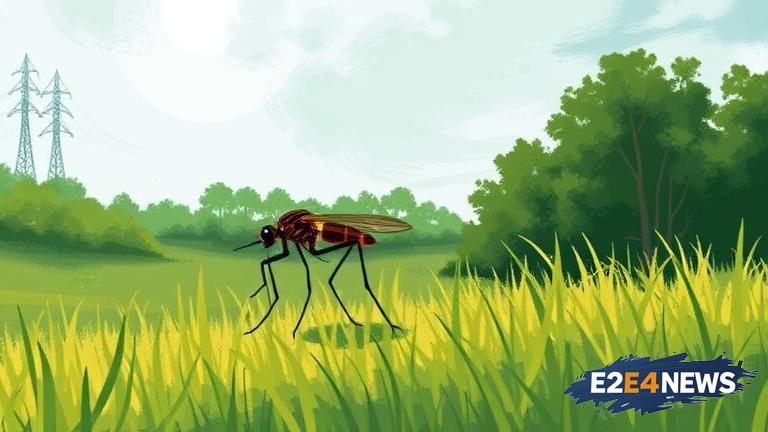The West Nile virus has been detected in several counties across Wisconsin, with a significant rise in reported cases over the past few weeks. According to health officials, the virus is primarily transmitted through the bite of an infected mosquito, and the risk of infection is higher during peak mosquito season. The Wisconsin Department of Health Services has confirmed multiple cases of West Nile virus in humans, with some patients experiencing severe symptoms such as meningitis and encephalitis. In response to the outbreak, local health departments are urging residents to take precautions to prevent mosquito bites, including wearing insect repellent and eliminating standing water around homes. The West Nile virus is a serious public health concern, and Wisconsin residents are advised to be vigilant and take necessary steps to protect themselves. The virus can cause a range of symptoms, from mild fever and headache to severe neurological disease, and in rare cases, it can be fatal. Health officials are working to educate the public about the risks associated with West Nile virus and the importance of prevention. In addition to human cases, the virus has also been detected in birds and horses, highlighting the need for a comprehensive approach to prevention and control. The Wisconsin Department of Natural Resources is working to monitor mosquito populations and track the spread of the virus. Residents are encouraged to report any dead birds to the department, as this can help identify areas where the virus is present. The West Nile virus is most commonly transmitted through the bite of an infected Culex mosquito, which is common in Wisconsin. The virus can also be transmitted through blood transfusions and organ donations, although this is rare. Wisconsin health officials are working with the Centers for Disease Control and Prevention (CDC) to monitor the outbreak and provide guidance on prevention and control measures. The CDC recommends that people take steps to prevent mosquito bites, including wearing long-sleeved shirts and pants, applying insect repellent, and avoiding outdoor activities during peak mosquito hours. In Wisconsin, the peak mosquito season typically runs from June to September, although the risk of West Nile virus can persist into the fall. The state’s health department is also working to educate healthcare providers about the diagnosis and treatment of West Nile virus, to ensure that patients receive prompt and effective care. In some cases, patients may require hospitalization and supportive care, such as intravenous fluids and pain management. The economic impact of the West Nile virus outbreak in Wisconsin is also a concern, as it can affect the state’s agricultural and tourism industries. The Wisconsin Department of Agriculture, Trade and Consumer Protection is working to monitor the outbreak and provide guidance to farmers and animal owners on how to protect their animals from the virus. Overall, the West Nile virus outbreak in Wisconsin is a serious public health concern that requires a comprehensive and coordinated response from health officials, residents, and other stakeholders. By taking preventive measures and being aware of the risks, Wisconsin residents can help protect themselves and their communities from the spread of the virus.
